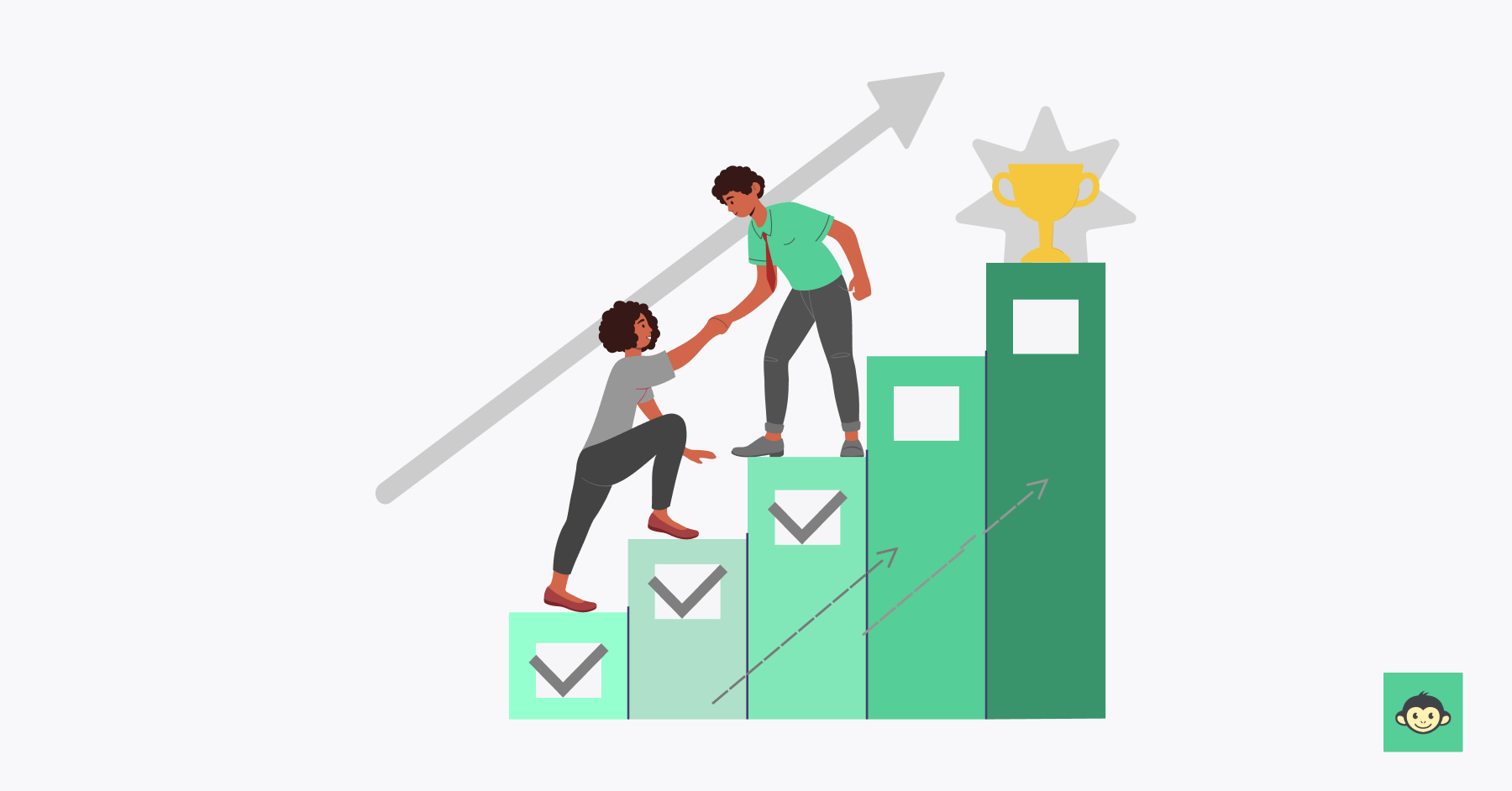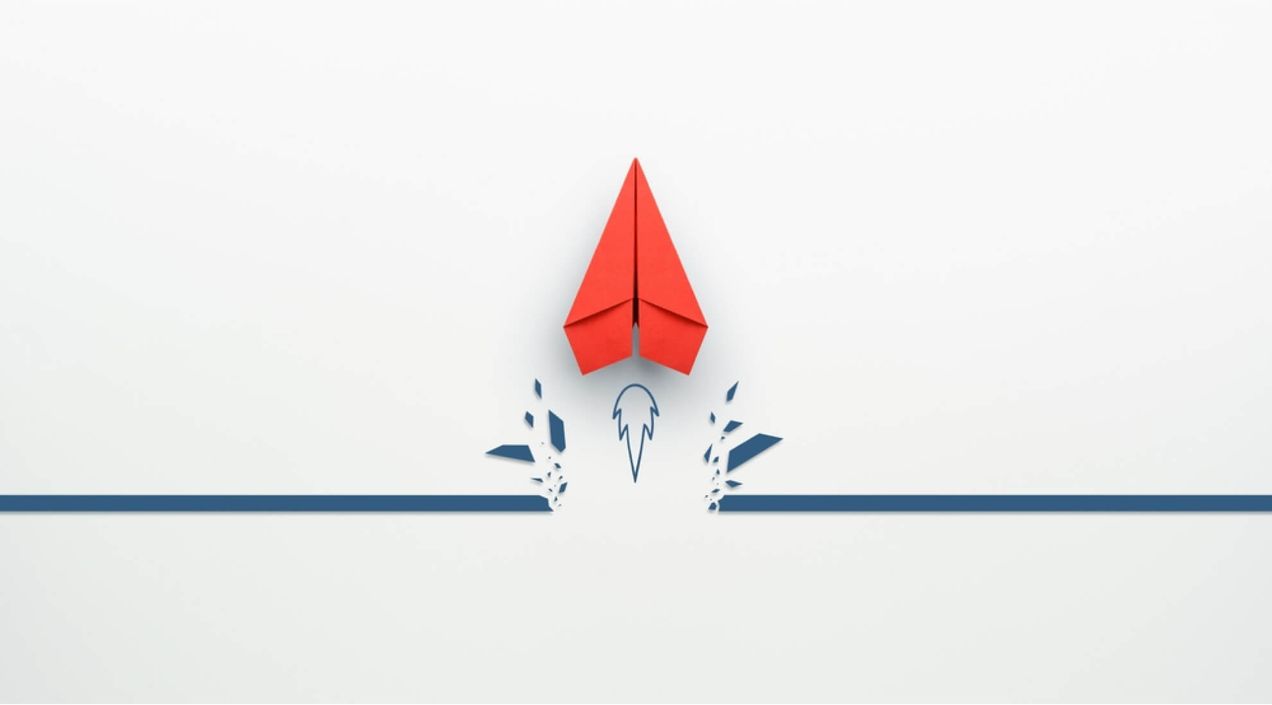Top 5 levels of leadership: How to crack true leadership in 2023

According to a recent survey, a staggering 89% of business leaders believe that leadership effectiveness is a critical factor in achieving sustainable success in the 21st century.
In the ever-evolving landscape of leadership, the year 2023 arrives as a pivotal juncture, marked by unprecedented challenges and remarkable opportunities. As organizations navigate through a rapidly changing global context, the essence of leadership has taken on new dimensions, demanding a deeper understanding of its intricacies.
The pursuit of cracking true leadership rests not merely on a formulaic approach, but on an intricate tapestry woven from experience, adaptability, and a profound connection with those being led. The Top 5 Levels of Leadership provide a roadmap, each level unveiling a layer of leadership mastery that is indispensable in this dynamic landscape.
What is leadership?

Leadership is a multifaceted and dynamic concept that encompasses the ability to guide, influence, and inspire individuals or groups toward achieving common goals.
It goes beyond just holding a position of authority and involves a combination of traits, skills, and behaviors that foster collaboration, vision, and positive change. Leadership is an essential component in various spheres of life, including business, politics, education, and community development.
At its core, leadership involves guiding others by setting a clear vision and direction. Effective leaders possess a strong sense of purpose and can articulate this purpose in a way that resonates with others. This vision serves as a roadmap that guides the actions and decisions of the team or organization toward the desired outcomes.
One of the key aspects of leadership is the ability to influence and motivate individuals. This entails understanding the needs, aspirations, and concerns of team members and using that understanding to encourage and inspire them to give their best effort.
Leadership involves cultivating a positive and supportive environment where individuals feel empowered, valued, and motivated to contribute their unique skills and perspectives.
Who coined the 5 levels of leadership theory?

The "Five Levels of Leadership" theory was coined by John C. Maxwell, a renowned author, speaker, and leadership expert. John C. Maxwell is a prolific writer in the field of leadership and personal development, having authored numerous books on these topics.
He has gained widespread recognition for his insights into leadership and his ability to distill complex concepts into practical and actionable advice.
The "Five Levels of Leadership" framework, presents a hierarchical model of leadership development that individuals can progress through as they grow and refine their leadership skills.
What are the 5 levels of leadership in order?

The five levels of leadership, in order, are as follows:
Positional leadership
This is the foundational level of leadership. It is characterized by leading based solely on one's formal title or position within an organization. People follow because they are required to due to the leader's authority.
Leadership effectiveness at this level is limited to the power and control granted by the position. It's important to note that this level does not necessarily denote effective leadership, as it relies primarily on the leader's title rather than their influence or skills.
Permission leadership
At this level, leaders start to build relationships and establish trust with their team members. Leaders focus on creating a positive and supportive work environment. People follow the leader because they choose to, not just because of the leader's title.
This level emphasizes the importance of likeability, approachability, and interpersonal skills in gaining the trust and support of followers.
Production leadership
At this level, leaders focus on achieving tangible results and demonstrating their competence as successful leaders. They deliver outcomes that contribute to the success of the organization.
Leaders at this level are recognized for their ability to drive performance and deliver on goals. People follow because of the leader's track record of achieving results and creating a productive work environment.
People development
At this level, leaders prioritize the growth and development of their team members. They invest time and effort in mentoring, coaching, and helping individuals reach their full potential.
Leaders at this level understand that by developing their team members, they create a strong and sustainable foundation for the organization's success. People follow because of the leader's commitment to their personal and professional growth.
Pinnacle leadership
At the highest level of leadership, pinnacle leaders have a profound and lasting impact on their team, organization, and even the broader community. They have developed a legacy of influence and have cultivated a network of leaders.
Pinnacle leaders are respected and admired by other leaders for their achievements, character, and contributions. People follow them not just for their position or results, but because they are inspired by the leader's vision, values, and impact.
This framework provides a roadmap for leaders to assess their current level of leadership effectiveness and work towards progressing to higher leadership levels of influence and impact.
It emphasizes the importance of developing interpersonal skills, building relationships, achieving results, nurturing talent, and leaving a lasting legacy of leadership.
How to achieve the 5 levels of leadership in the workplace?

Achieving the five levels of leadership in the workplace, as outlined by John C. Maxwell, requires a combination of personal growth, skill development, and a deep understanding of leadership principles. Here's a comprehensive guide on how to progress through each level:
How to hack positional leadership
Focus on building credibility: Develop a strong work ethic, deliver on your responsibilities, and consistently demonstrate reliability.
Seek to understand: Actively listen to your team members, understand their concerns, and show empathy.
Develop basic communication skills: Practice clear and effective communication to convey expectations and instructions.
How to hack permission leadership
Build relationships: Invest time in getting to know your team members on a personal level. Show genuine care for their well-being and work-life balance.
Develop emotional intelligence: Enhance your ability to recognize and manage your own emotions and those of others.
Create a positive environment: Foster an inclusive and collaborative atmosphere where everyone feels valued and respected.
How to hack production leadership
Set clear goals: Define measurable objectives and communicate them to your team. Track progress and celebrate achievements.
Lead by example: Demonstrate a strong work ethic, enthusiasm, and dedication to achieving results.
Problem-solving skills: Develop the ability to identify challenges, analyze situations, and make informed decisions to overcome obstacles.
How to hack people development
Identify potential: Recognize the strengths and weaknesses of your team members and help them tap into their potential.
Provide mentoring and coaching: Offer guidance, share insights, and create opportunities for skill development and growth.
Delegate effectively: Empower team members by entrusting them with responsibilities and encouraging autonomy.
How to hack pinnacle leadership
Vision and values: Develop a compelling vision for the future and communicate it with passion. Align actions with your core values to inspire others.
Empower people development leaders to invest in others: Encourage and support your team members to take on leadership roles and contribute to the organization's success.
Leave a legacy: Focus on creating a sustainable impact by mentoring emerging leaders and contributing to positive organizational culture.
General strategies for progressing through the levels
Continual learning: Invest in your own personal and professional leadership growth, by listening to leadership podcasts, reading leadership literature, attending workshops, and seeking feedback.
Self-awareness: Regularly assess your strengths, weaknesses, and areas for improvement. Adapt your leadership style as needed.
Authenticity: Be true to yourself and your values while adapting your approach to meet the needs of your team and organization.
Feedback and reflection: Encourage open communication with your team and seek feedback to identify areas for improvement.
Lead with integrity: Demonstrate honesty, ethical behavior, and a commitment to serving the greater good.
Remember that progressing through the levels of leadership is a journey that requires patience, dedication, and a willingness to learn and adapt.
By focusing on personal growth, relationship-building, achieving results, and cultivating the potential of others, you can develop into a highly effective and influential leader in the workplace.
Who is a level 5 leader, and why does it matter?

A Level 5 leader, as introduced by Jim Collins in his book "Good to Great", represents the highest level of leadership effectiveness and impact. A Level 5 leader is characterized by a combination of personal humility and professional will.
These leaders possess an exceptional ability to drive long-term sustainable results for their organizations while remaining humble and focused on collective success rather than personal accolades.
Key characteristics of a Level 5 leader include:
Humility
Level 5 leaders are remarkably modest and self-effacing. They attribute their organization's success to the collective efforts of the team rather than their contributions. They are quick to credit others for accomplishments and take personal responsibility for failures.
Willpower and determination
These leaders display unwavering determination and an unrelenting resolve to achieve the organization's goals. They are driven by a strong work ethic and a deep commitment to excellence.
Focus on the success of others
Level 5 leaders prioritize the success of their organization above personal recognition or gain. They are more concerned with building a lasting legacy and ensuring the ongoing success of the organization even after their tenure.
Empowerment
These leaders empower their team members to develop important leadership skills and provide opportunities for growth and development. They create an environment where individuals can thrive and contribute their best efforts.
Personal integrity
Level 5 leaders are characterized by their strong moral compass and ethical behavior. They uphold high standards of integrity and lead by example.
The significance of Level 5 leadership lies in its profound impact on organizations and their long-term success. Here's why Level 5 leadership matters:
Sustainable results: Level 5 leaders drive organizations to achieve exceptional results that are sustained over the long term. Their focus on building a strong foundation and cultivating a culture of excellence leads to enduring success.
Leadership succession: Level 5 leaders prioritize developing the next generation of leaders. Their emphasis on empowering others and creating a strong leadership pipeline ensures the organization's continued growth and success.
Organizational culture: These leaders contribute to the development of a positive and values-driven organizational culture. Their humility and commitment to ethical behavior set the tone for a healthy work environment.
Adaptability: Level 5 leaders are adaptable and open to change. Their focus on the success of the organization, rather than their ego, enables them to make tough decisions that lead to positive transformation.
Inspirational influence: Their humility and dedication inspire others to follow their lead and invest their best efforts in the organization's goals.
In summary, a Level 5 leader embodies a unique combination of humility, determination, and a focus on organizational success.
Their leadership approach fosters a culture of excellence, empowers team members, and drives sustainable results. The impact of Level 5 leadership is far-reaching, influencing the organization's performance, growth, and legacy.
Why does maintaining the status of a level 5 leader matter?

Maintaining the status of a Level 5 leader, as defined by Jim Collins in his book "Good to Great," holds significant importance for both leaders and organizations.
This leadership level represents the pinnacle of leadership effectiveness and impact, combining personal humility with unwavering professional will. Here's why maintaining the status of a Level 5 leader matters:
- Continued organizational success: Level 5 leaders are associated with sustained and exceptional organizational success. By maintaining Level 5 leadership qualities, leaders can ensure that their organizations continue to thrive and achieve outstanding results over the long term.
- Cultural Influence: Level 5 leaders help shape and reinforce a positive organizational culture. Their humility, integrity, and commitment to the greater good set a standard for ethical behavior, teamwork, and excellence, inspiring others to uphold these values.
- Leadership development: Maintaining Level 5 leadership qualities is essential for grooming future leaders. Level 5 leaders prioritize the development of their team members and successors, ensuring a strong leadership pipeline and organizational continuity.
- Effective decision-making: Level 5 leaders make decisions based on what is best for the organization rather than personal gain. By continuing to prioritize collective success over personal interests, leaders can make informed and strategic decisions that drive growth.
- Adaptability and innovation: Organizations operate in dynamic environments that require adaptability. Level 5 leaders are open to change, willing to innovate, and capable of guiding their teams through challenges with a focus on long-term goals.
- Positive reputation: Maintaining Level 5 leadership qualities helps leaders build and maintain a positive reputation, both within the organization and in the larger professional community. A reputation for humility, integrity, and results-oriented leadership enhances credibility and influence.
- Legacy and impact: Level 5 leaders leave a lasting legacy of positive influence and impact. By maintaining these qualities, leaders can ensure that their contributions continue to shape the organization's trajectory even after their departure.
- Employee engagement: A Level 5 leader's humility and concern for others foster a sense of belonging and engagement among team members. Maintaining these qualities leads to a motivated and committed workforce that contributes to organizational success.
- Resilience and endurance: The determination and willpower inherent in Level 5 leadership help leaders persevere through challenges and setbacks. By maintaining these qualities, leaders can navigate adversity while maintaining focus on the organization's goals.
- Personal growth: Level 5 leadership encourages leaders to continuously improve themselves. By maintaining humility and a commitment to learning, leaders can refine their skills, broaden their perspectives, and deepen their impact.
Maintaining the status of a Level 5 leader is crucial for achieving sustained organizational success, fostering a positive culture, developing future leaders, making effective decisions, adapting to change, and leaving a lasting legacy.
It is a commitment to ongoing growth, personal development, and prioritizing the collective good over individual recognition.
Importance of manager effectiveness in becoming a great leader

Manager effectiveness plays a pivotal role in the journey toward becoming a great leader. While management and leadership are distinct concepts, they are intertwined and mutually reinforcing. Developing effective managerial skills lays a strong foundation for aspiring leaders to transition into impactful and influential leaders.
Here's why manager effectiveness is of paramount importance in the pursuit of becoming a great leader:
Operational excellence: Effective managers excel in organizing resources, setting priorities, and ensuring that tasks are executed efficiently. These operational skills are essential in any leadership role, as they provide the basis for achieving organizational goals and maintaining a well-functioning team.
Team development: Managers have direct oversight of their teams. Being an effective manager involves nurturing a cohesive and high-performing team, which is a cornerstone of any leadership position. Strong team development skills, such as coaching, feedback, and fostering collaboration, are transferable to leadership roles.
Communication skills: Effective managers possess strong communication skills, both in conveying instructions and actively listening to team members. Clear communication is vital for leaders to articulate a vision, motivate followers, and foster a culture of transparency and open dialogue.
Decision-making: Managers routinely make decisions that impact their teams and projects. Developing effective decision-making skills, which involve assessing options, analyzing risks, and considering long-term consequences, prepares individuals for the complex decision-making required in leadership positions.
Problem-solving: Managers frequently encounter challenges and problem-solving scenarios. Being adept at analyzing issues, identifying root causes, and developing solutions hone the critical thinking skills essential for addressing organizational challenges as a leader.
Change management: Change is a constant in today's business landscape. Effective managers are skilled at managing change within their teams, helping team members adapt to new processes or strategies. These change management skills are valuable for leaders navigating organizational transformations.
Conflict resolution: Conflicts and disagreements are inevitable in any workplace. Managers who can diplomatically manage conflicts and foster a harmonious work environment develop interpersonal skills crucial for building strong relationships as leaders.
Performance management: Managers assess individual and team performance regularly. Developing proficiency in leadership assessment, providing constructive feedback, setting goals, and evaluating progress equip individuals to lead by example when it comes to performance management.
Resource allocation: Effective managers allocate resources judiciously to optimize productivity and achieve objectives. This skill becomes essential as leaders manage larger-scale resources and strategic initiatives.
Influence and motivation: Managers who can inspire and motivate their teams showcase leadership qualities. Their ability to understand individual motivations and create a positive work environment sets the stage for becoming influential leaders.
Strategic thinking: Effective managers think beyond immediate tasks and consider broader organizational goals. This strategic mindset is a stepping stone to leadership roles where the ability to envision and execute long-term strategies is vital.
Learning and adaptability: The learning mindset that effective managers cultivate is indispensable for leaders in rapidly evolving industries. The willingness to learn, adapt, and embrace new skills enhances leadership effectiveness.
Effective managers possess skills and qualities that significantly overlap with those of great leaders. By honing managerial capabilities, individuals lay a solid foundation for transitioning into leadership roles with enhanced operational proficiency, team development, leadership abilities, communication skills, and strategic thinking.
Manager effectiveness is a valuable starting point on the path to becoming a truly impactful and transformative leader.
In the dynamic landscape of leadership in 2023, mastering the top five levels of leadership is not just a goal; it's a transformative journey that can reshape organizations and impact lives.
Much like ascending a challenging summit, cracking the code to true leadership requires an unwavering commitment to growth, adaptability, and self-discovery.
Aspiring leaders must embark on this expedition armed with a deep understanding that leadership is not a static role, but a fluid and evolving practice. From the foundational level of positional leadership to the pinnacle of leaving a legacy, the voyage involves nurturing skills, cultivating relationships, and championing authenticity.
In an era of rapid change, leaders who seamlessly traverse these levels are those who lead with empathy and integrity. They understand that leadership extends beyond corner offices and titles, get feedback about them from employees regularly, reaching into the hearts and minds of team members who yearn for purpose, growth, and connection.
Conclusion
In the ever-evolving saga of leadership, you've just uncovered the blueprint to ascend through the top 5 levels of true leadership in 2023. Remember, being a leader isn't just about titles—it's about influence, inspiration, and impact.
As you journey from individual contributor to empowering mentor, each level builds on the last, shaping you into a guide for growth.
However, a pivotal enhancement to this leadership expedition can be found in CultureMonkey's employee engagement survey tool. Through its advanced functionalities, AI-backed analyses, and adaptable attributes, CultureMonkey emerges as an indispensable tool for traversing the intricate facets of leadership.
Whether you're mastering self-awareness, fostering team collaboration, or championing organizational change, CultureMonkey equips you with the data and insights to lead with precision.



